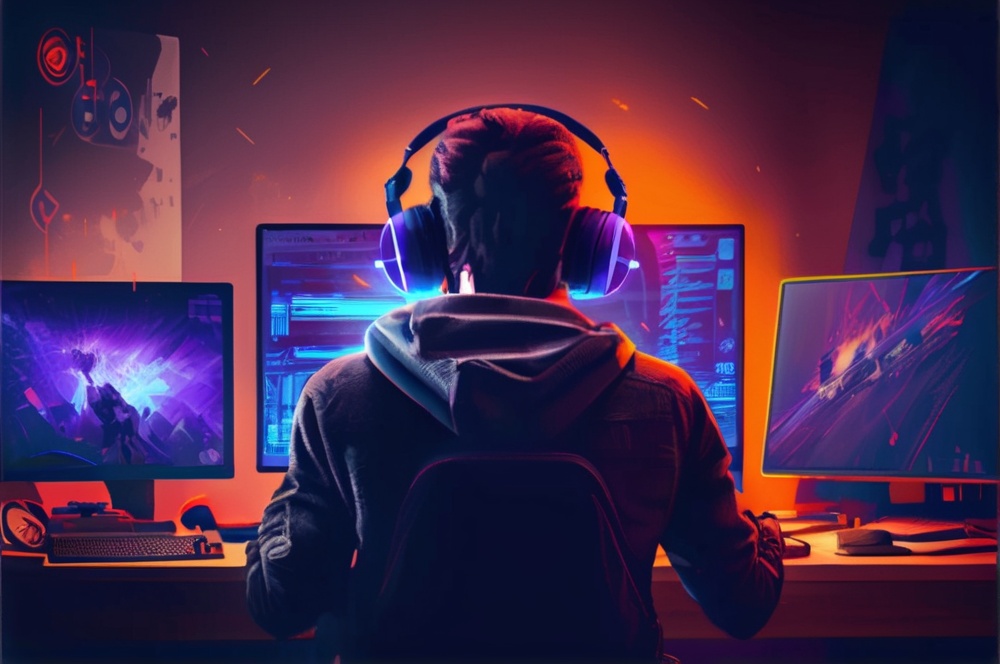The Transformative Power of Artificial Intelligence in Esports
Artificial intelligence (AI) is revolutionizing the esports industry, transforming how teams prepare, compete, and engage with their audience. Here’s a deep dive into how AI is shaping the future of esports.
Artificial Intelligence and Match Analytics
AI plays a crucial role in analyzing game data, a task that previously required significant time and human resources. With deep learning technologies and machine learning algorithms, AI can process vast amounts of information with unprecedented speed and accuracy. These systems analyze players’ actions in real-time, identifying patterns in their behavior, key mistakes, and strengths.
For instance, in games like Dota 2, AI tools help teams adapt to changes and improve their tactics by analyzing historical data and current trends. This includes identifying critical counter-strategies that may not have been used in recent matches. For example, if a particular hero like Azir is currently popular, AI can suggest less common counter-picks like Veigar, which might not have been played recently but could still be effective.
Enhancing the Viewer Experience
AI is not only beneficial for players but also enhances the spectator experience. Machine learning technologies automate the creation of highlight reels, pinpointing the most exciting and crucial moments of the game. This saves time for broadcast editors and makes each game more dynamic for viewers. Fans can now see the best moments almost instantly, maintaining their interest and engagement throughout the match.
Moreover, AI personalizes the viewing experience by analyzing user preferences, including favorite teams, players, and match formats. This enables platforms to recommend content that best matches each fan’s interests, ensuring they stay updated on key events and important updates. For example, AI can notify fans about upcoming tournaments, schedule changes, and game updates, making the experience more engaging and informative.
Improving Gameplay Through AI
AI is instrumental in training players by providing unique opportunities for improvement. One key tool is the use of machine learning systems that create virtual opponents. These opponents can adapt to the playstyle of a specific team or player, mimicking the actions of real opponents. This allows teams to practice not only standard tactics but also prepare for unusual situations that may arise during matches.
AI also identifies weaknesses in teams’ strategies by analyzing match recordings and providing precise recommendations for improvement. For instance, AI can detect when a team loses its advantage in specific game moments or fails to utilize available resources effectively. This feedback is crucial for professional players who strive for constant improvement.
Training Simulations
AI enables teams to create complex simulations, allowing them to rehearse scenarios that could prove decisive in real tournaments. These simulations help teams enhance their skills and stay one step ahead of their competitors. Training sessions become more productive, and teams can adjust their strategies in real time, making the game more professional and thrilling for spectators and fans.
Data-Driven Decision-Making
Coaches and teams leverage AI to make informed decisions about player roles, roster changes, and strategies. By analyzing vast amounts of data, AI supports teams in optimizing their performance and increasing their chances of success in tournaments. For example, AI can help coaches determine the best draft picks by uncovering hidden counter-strategies and analyzing historical data to predict opponent tendencies.
Preventing Cheating and Ensuring Fair Play
AI also plays a critical role in maintaining the integrity of esports competitions by detecting cheating. AI systems can automatically monitor matches and identify suspicious activities, ensuring fair play. This automation is essential in a highly competitive environment where huge prizes and bragging rights are at stake.
Enhancing Fan Engagement
AI-generated content is becoming increasingly popular in esports. Beyond match analytics, AI creates highlight reels, commentary, and post-game analysis. Large stadiums use AI-powered cameras to capture unique angles and content that can be repurposed for social media, capturing the most exciting footage from competitive games.
Additionally, AI personalizes fan interactions by recommending content based on their preferences. This includes notifications about upcoming events, favorite teams, and players, ensuring fans are always engaged and updated on the latest developments in the esports world.
Streamlining Tournament Organization
AI automates various organizational tasks in esports tournaments, such as scheduling and match monitoring. This streamlining process makes tournament management more efficient, allowing organizers to focus on other critical aspects of the event.
Real-Time Insights and Highlights
AI provides real-time insights and highlights, making the content more engaging and digestible for fans. This includes automated commentary and analysis, which can be shared across different platforms, enhancing the overall viewing experience.
The Future of Esports with AI
The integration of AI in esports is not just a technological advancement but a revolution in the approach to the game. AI is transforming how teams prepare, how games are analyzed, and how fans engage with the sport. As the technology continues to evolve, we can expect even more sophisticated tools and strategies to emerge.
Advanced Analytics and Predictive Models
AI will continue to provide advanced analytics and predictive models, helping teams devise effective tactics against opponents. This includes predicting match outcomes and identifying key trends in player behavior, which can be crucial in high-stakes tournaments.
Personalized Training Programs
AI will tailor training programs to individual players, offering personalized feedback and strategies based on their unique gameplay styles. This customization will enable players to focus on specific areas for improvement, leading to more effective training sessions.
Enhanced Game Development
AI is also influencing game development by enabling developers to create more sophisticated and engaging gaming experiences. AI can simulate player behavior, allowing developers to test and refine game mechanics effectively. This ensures that games are more balanced and enjoyable for players at all levels.
In conclusion, AI is driving the growth and expansion of the esports industry, fostering a more dynamic and competitive landscape. As AI continues to evolve, it will remain a pivotal component in shaping the future of esports.






